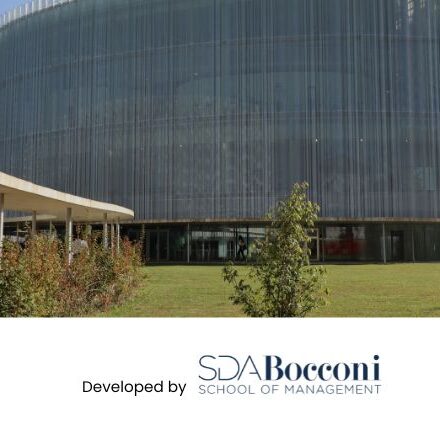Strengthening hospital safety: the urgent need for digital transformation in controlled substances management
15 April 2025
As part of EPACT project EHMA has just released the report, ‘Leveraging Digitalisation and Automation for Controlled Substances Management in European Hospitals’. This paper significantly supports the project’s key deliverables by contributing to the work programme of the European Directorate for the Quality of Medicines at the Council of Europe and the European policy agenda. The report aims to demonstrate how the digitalisation of hospitals’ medication management pathways can reduce the risk of drug diversion, enhance governance, and improve patient safety. By mapping best practices and highlighting the added value of digital tools, this paper shows the need for investment in technologies that support an overburdened workforce, prevent medication harm, and ensure more resilient health systems.
The management of controlled substances in hospitals is not just a legal necessity, it’s a matter of patient safety, public trust, and healthcare system resilience. Despite this, EHMA reveals that many European hospitals are still managing these high-risk medications using outdated, manual systems vulnerable to errors and misuse.
Controlled substances, such as opioids and anaesthetics, play a vital role in treatment. However, their potential for diversion and abuse demands urgent and defined management. Unfortunately, across the EU, practices remain inconsistent and fragmented. EHMA’s survey, conducted in collaboration with National Competent Authorities (NCAs), found that over 40% of hospital pharmacists identify registration, dispensing, and administration as major pain points and are all still heavily reliant on manual workflows.
Even more concerning, only six out of the 16 countries surveyed explicitly reference digitalisation in their national regulations. While countries like Poland and Spain have implemented advanced digital monitoring systems, others still use paper logs and semi-digital systems, leaving dangerous gaps in traceability and accountability.
Digitalisation offers a clear path forward. Tools such as electronic prescribing, automated dispensing cabinets, barcode verification, and integrated monitoring software can reduce human error, improve traceability, and ensure real-time compliance with regulations. When deployed effectively, these technologies streamline workflows, enhance security, and empower healthcare professionals to focus more on care and less on paperwork.
The report outlines four key recommendations:
- Accelerate digitalisation of controlled substance management across all EU hospitals.
- Harmonise regulations at the EU level to ensure consistency in digital record-keeping and oversight.
- Provide targeted funding to support the digital shift, especially in resource-constrained facilities.
- Promote best practices by sharing successful national and regional models.
The message from stakeholders is clear: 88% of NCAs surveyed support a transition to digital reporting systems, with 75% calling for formal regulation. The readiness is there yet what’s needed now is leadership, investment, and coordinated EU-wide action.
As healthcare systems across Europe push toward digital transformation, the management of controlled substances must not be left behind. With the right infrastructure, policies, and training, hospitals can build safer, smarter, and more accountable medication management systems, protecting both patients and professionals.
Recent News

Strengthening Medicine Supply Resilience Through Digital Transformation

Enhancing Health Management: SDA Bocconi School of Management Self-Learning Modules Successfully Concluded

EHMA joins EU4Health Civil Society Alliance in expressing concerns over restrictions on civil society funding
What our Members say
I have been active in EHMA since the first years of the '90s and I have seen its evolution from a small association of members interested in sharing knowledge on health management practices to the current status of reference and advisory key player for EU, health systems and organisations, stakeholders associations, industry and universities. EHMA is now a unique knowledge hub, policy advisor, community of practice and network of best in class organisations involved in health policy and management. A place where health managers can build their competences, policy-makers and stakeholder associations envision how to implement and sustain change through health management, industry leaders understand how to engage more effectively with health organisations and systems. The right place to nurture and grow health management capabilities and capacity for every stakeholder of health systems.
Prof. Federico Lega, University of Milan, Italy
Health management has a crucial function in shaping public health and health system challenges. The Medical University of Varna, Bulgaria had success in collaborating with EHMA on EU-funded projects that has resourced us to create new health management competencies for the future workforce. In addition to all classical definitions, health management is a science dealing with individuals, groups, and society at large. It is an art contributing to the beauty of our lives and an interactive communication process at all levels of institutions and human energy. I have also had the pleasure to chair the South Eastern European Special Interest Group which gives members a space to discuss and tools to address how health systems are managed in our regions.
Prof. Todorka Kostadinova, Medical University of Varna, Bulgaria
I enjoy the high level of interaction and engagement in EHMA’s activities, in particular during the annual conference where the panel discussions are rich and well prepared. As a hospital manager and professor of health management, EHMA motivates and inspires me to be creative. You go back home feeling energised from seeing old friends and making new connections, as well as being convinced of serving as EHMA’s ambassador. It’s a strong feeling of interdisciplinary engagement, but it also feels like being part of family-like community.
Prof. Sandra C. Buttigieg, University of Malta, Malta
EHMA is a pre-eminent organisation for everyone working in planning, managing and delivering health services across Europe. As a long standing member of EHMA I have always been impressed by the vibrant community of managers, researchers and academics it has created and by the many opportunities for sharing knowledge and funding opportunities it has brought to its members. Its international scope is impressive and its impact is often felt in management and research across European and national health systems.
Prof. Axel Kaehne, Edge Hill University, UK
Health workforce has become more essential in operating, managing and maintaining health systems lately, particularly in crisis and emergency situations. European healthcare professions and the workforce need to be high on the agenda of managers and decision makers. The Health Services Management Training Centre, Semmelweis University in Hungary is a longstanding EHMA member, because it connects us with collaborators and experts, with whom we can have complex debates, from whom we can learn and at the end find solutions in various challenging fields of healthcare management.
Dr Eszter Kovács, Health Services Management Training Centre, Semmelweis University, Hungary
As a hospital administrator and health management professor, I see on a daily basis that the healthcare challenges require talented and skilled managers to transform it. the EHMA membership has been beneficial to bring healthcare management research and education to the demanding healthcare services world, promoting healthcare management competencies and knowledge creation.
Dr Alexandre Lourenco, APAH - Association of Portuguese Hospital Managers, Portugal
Many healthcare systems in Europe and beyond are facing similar challenges which require innovative and creative solutions. EHMA’s annual conference, webinars, Programme Directors’ group and other activities and resources provide incredible opportunities for networking, connecting and sharing experiences. A distinct feature of EHMA is the diversity of members with representation from many countries, sectors and different communities of practice – academic, policy-makers, practitioners, managers, leaders and students. The annual conference is a highlight in the calendar year, offering a friendly, fun and learningful environment for emerging and established members to engage, collaborate and meet up with old and new friends. I am proud to be a member of the EHMA Board.
Prof. Ann Mahon, University of Manchester, UK
Society evolution, pandemics and ageing modify health needs. So, health policies and services are to change dramatically. EHMA, through webinars, workshops and annual conference provides an excellent insight to a professional changing world, favouring closeness to management innovation and the protagonists of these changes. As a primary care services’ manager, participating in EHMA activities is really worth it and allows to involve oneself in the innovation processes.
Dr Antoni Peris Grao, Consorci Castelldefels Agents de Salut (CASAP), Spain